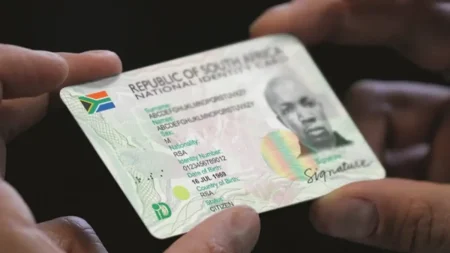Have you ever been in a situation where someone owes you money but refuses to pay? Or perhaps you paid for a product or service that was never delivered? If the amount involved is R20,000 or less, South Africa’s Small Claims Court offers a quick, easy, and lawyer-free way to resolve disputes.
This article will guide you through:
- Who can use the Small Claims Court
- The types of claims you can make
- How the process works
- What to expect during the hearing
- How to enforce a judgment if the defendant refuses to pay
If you have a valid claim and want to know how to seek justice without expensive legal fees, keep reading.
What is the Small Claims Court?
The Small Claims Court (SCC) is a specialized court designed for individuals to resolve minor civil disputes in a simple and affordable manner. It allows people to claim up to R20,000 without the need for a lawyer. The process is straightforward, making it accessible to everyone, including those who have never been involved in legal matters before.
This court is available in all Magistrate’s Courts across South Africa and is known for being efficient and cost-free.
Who Can Use the Small Claims Court?
The Small Claims Court is available to:
- Individuals (18 years or older) – Any private person can file a claim.
- Businesses and Companies – Not allowed to make claims.
- Government Entities – Cannot take matters to this court.
If you are under 18, you must be represented by a parent or legal guardian.
What Types of Cases Can Be Taken to the Small Claims Court?
The Small Claims Court handles various types of cases, including:
- Unpaid Debts – If someone borrowed money from you and refuses to repay.
- Unpaid Wages or Salaries – If an employer has not paid what they owe you.
- Breach of Contract – If someone did not fulfill their obligations in an agreement.
- Failure to Deliver Goods or Services – If you paid for something and never received it.
- Property Damage Claims – If someone damaged your belongings and refuses to compensate you.
- Deposit Refund Disputes – If a landlord refuses to return your deposit after you moved out.
Cases NOT Allowed in the Small Claims Court
- Divorce, maintenance, and child custody disputes
- Claims related to wills or inheritance issues
- Defamation cases (slander or libel)
- Claims over R20,000 – If your claim exceeds this amount, you must either reduce the claim or take the case to a higher court.
Step-by-Step Guide: How to File a Claim in the Small Claims Court
If you have a dispute and want to take legal action, follow these six steps:
Step 1: Send a Letter of Demand
Before taking your case to court, you must first send a written demand to the person or company you are claiming from (the defendant). This letter should:
- Clearly state the amount owed.
- Explain why they owe you money.
- Give them 14 days to respond or settle the matter.
If they ignore your letter or refuse to pay, proceed to Step 2.
Step 2: Visit the Small Claims Court
Go to your nearest Magistrate’s Court and take:
- A copy of your letter of demand
- Any proof of the debt (contracts, invoices, receipts, or agreements)
- Evidence supporting your case (e.g., photos, emails, text messages)
The court clerk will help you fill out the necessary forms and officially register your claim.
Step 3: The Court Assigns a Hearing Date
Once your forms are submitted, the court will set a hearing date. You must inform the defendant (the person you are claiming against) about this date.
Step 4: Attend the Court Hearing
- The hearing is informal—you do not need a lawyer.
- Both you and the defendant will present your cases.
- The Commissioner (judge) will listen to the facts, review evidence, and ask questions.
Step 5: The Court Gives a Judgment
After hearing both sides, the Commissioner will issue a ruling. If they rule in your favor, the defendant is legally required to pay you the claimed amount.
Step 6: Enforcing the Judgment
If the defendant refuses to pay, you can take enforcement action, such as:
- Instructing the Sheriff of the Court to seize their assets.
- Applying for a garnishee order (deducting money from their salary or bank account).
Why Choose the Small Claims Court?
- Free of Charge – No lawyer fees, no court fees.
- No Lawyers Needed – You can represent yourself.
- Quick & Simple Process – Cases are handled faster than in higher courts.
- Accessible to Everyone – Even if you have no legal background, you can use this court.
Tips to Win Your Case in the Small Claims Court
- Gather Strong Evidence – Keep all receipts, invoices, contracts, and messages related to your claim.
- Stay Calm & Professional – Be respectful and stick to the facts during your hearing.
- Dress Neatly & Be on Time – Show the court that you are serious.
- Prepare Your Case Well – Practice what you will say and keep your arguments clear.
- Follow Up on the Judgment – If you win, make sure the defendant actually pays you.
Learn More: Child Maintenance Court Cases: How to Speed Up the Process
Where to Find the Small Claims Court in South Africa
Each Magistrate’s Court has a Small Claims division. To find your nearest Small Claims Court, visit www.justice.gov.za.
The Small Claims Court is an excellent solution for South Africans who need to resolve small disputes without expensive legal fees. Whether you are owed money, need a refund, or want compensation for damages, this court provides a quick and fair way to claim what is rightfully yours.
If you have a valid claim of R20,000 or less, don’t let it go. Use the Small Claims Court to stand up for your rights.










